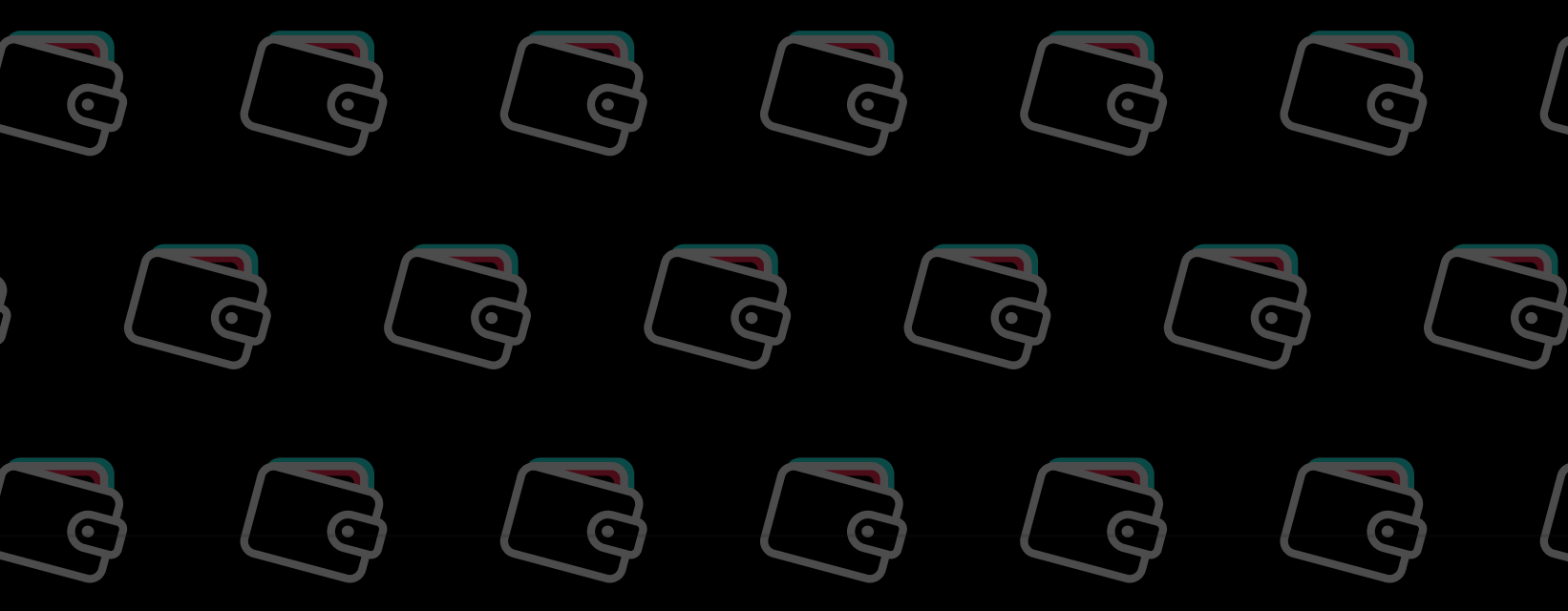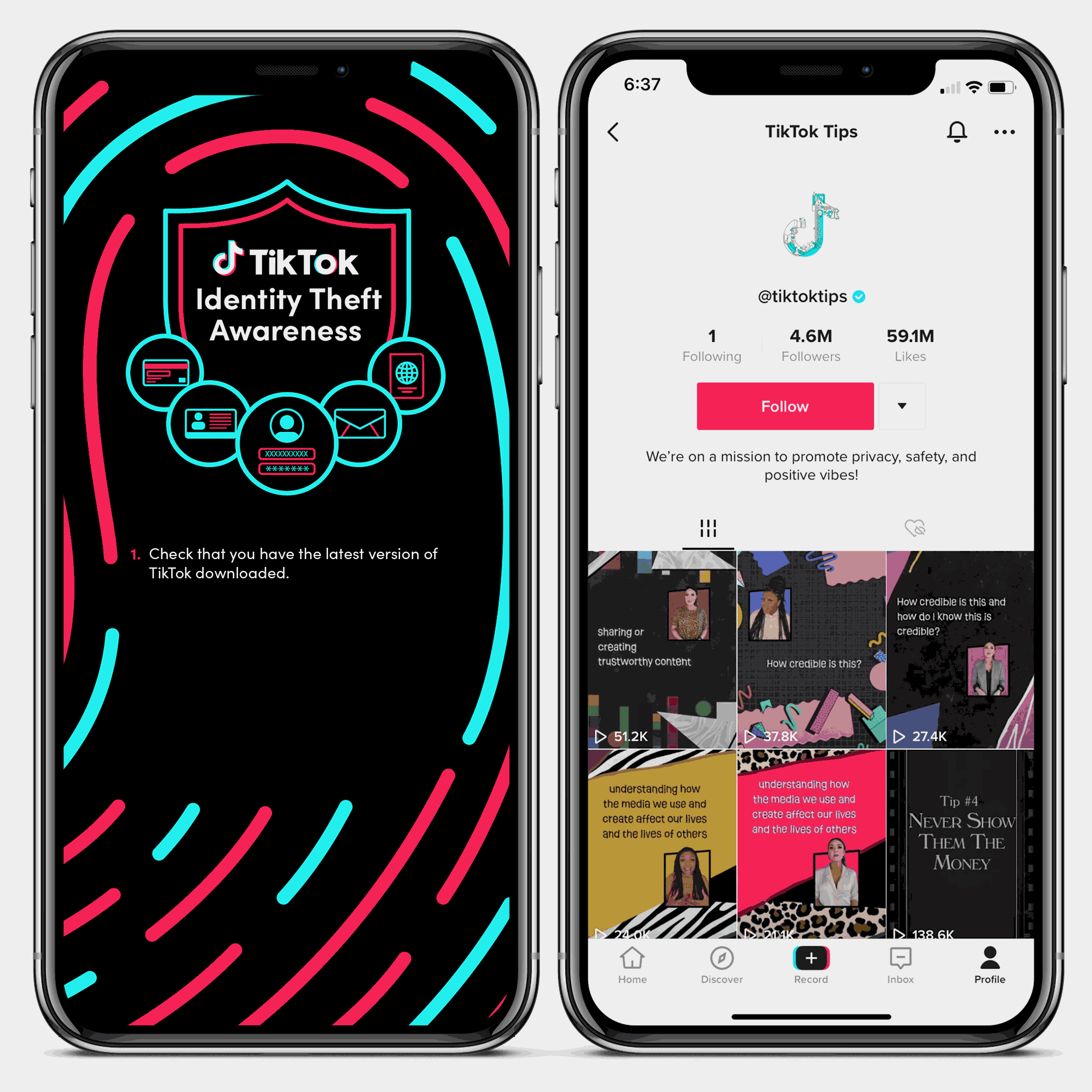Scams

Our stance on scams
At TikTok, we prize user safety and content authenticity. We adopt a zero-tolerance approach and do not allow any form of scam-related content on our platform. As we make clear in our Community Guidelines, we seek to remove any content that seeks to exploit the trust of our users for personal benefit. Users with repeated violations may have their accounts banned.
We recognise the harm scams can bring and have actively launched several initiatives to spread awareness about cybercrime and digital literacy, including participating in International Fraud Awareness Week and starting our very own #BeCyberSmart campaign.
What are scams?
Scams are fraudulent and deceitful acts that can take place online. These scams typically include the exploitation of others for some form of monetary gain but may also involve a scammer trying to obtain an individual’s personal data. This includes data such as personal ID numbers, account login details, addresses, dates of birth, email addresses, phone numbers and One-Time Passwords (OTP).
Common types of online scams
Here are some examples of online scams to be aware of:
| Job scams | Scams promoting fraudulent and unsolicited job offers that appear prestigious, high-paying, and with minimal effort required. These scams often include a “registration fee” that victims never recover and may ask for personal information to be used in later scams. |
| Phishing | Scams where users are deceived to unwittingly volunteer personal information. These scams are often carried out through fraudulent websites, emails, or texts appearing to represent a legitimate firm. |
| Loan scams | Scams where individuals claim to be licensed moneylenders and convincing victims to pay a “deposit” for loan disbursement. Upon the deposit transfer, these scammers become uncontactable. They may also ask for personal information to blackmail victims later for more payments. |
| Money mule scam | Scams that offer money making opportunities that require users to hand over the control of their bank account in return for a commission. In doing so, users may inadvertently be assisting in the illegal act of money laundering. |
| Mobile games scam | The scammers offer in-game items at no cost or at cheaper rates. This is most often followed by an instruction to visit a website or click on a link. This potentially exposes users to account loss, gaming currency loss, or financial loss. |
| Unrealistic returns scams | Free money scams which provide users with returns of cash, counterfeit notes, digital currency, gaming currency, cryptocurrency, etc usually in an attempt to scam the user via an “administrative fee” or to steal their personal information. Free goods and services scams which promiseusers returns of free goods and/or services including gift cards, phones, video streaming services, job offers, scamming methods, forged documents, stolen or fake online accounts, stolen or fake financial information, discounts, etc usually in an attempt to scam the user of an “administrative fee” or steal their personal information. |
| Romance scams | Scams which feign romance with a victim to gain their affection, often to access the victim’s bank accounts, credit cards, passports, e-mail accounts, or national identification numbers, or even force victims to commit fraud on their behalf. Click here for some TikTok tips to #BeCyberSmart and avoid romance scams. |
| Lottery scams | Scams which trick victims into believing that they have won the lottery or a lucky draw prize that can only be retrieved after paying administrative fees, taxes, or miscellaneous payments into a foreign bank account. |
| Donation scams | Scams which tend to arise in times of crisis where scammers ask for donations directly into their bank accounts via messages or through websites designed to accept donations or steal personal information. |
| Ponzi or pyramid schemes | A Ponzi scheme is a fraudulent investing scam promising high rates of return with little risk. It generates returns for earlier investors with money taken from later investors. A pyramid scheme is an investment scam based on a hierarchical setup of network marketing. |
| Fixed betting | These scams often claim to have tips or inside information on fixed matches, which are often false (and illegal). Victims lose money they bet through these scam tipsters. |
Keeping your account secure
Be wary of scammers pretending to be TikTok employees
We will never ask for your password through direct messaging or email. If you receive an email from someone claiming to be from TikTok, check the email address and ensure it ends with @tiktok.com before opening or replying to it.
Keep vigilant always
Avoid clicking on unknown links or opening unknown attachments as they could be fraudulent or malicious. When making transactions, always verify the legitimacy of the site by looking carefully at the URL.
Check with a legitimate source
When in doubt whether something is legitimate or not, always check with an original, official, and verified source (e.g., go to the official website through a search engine instead of clicking on an unknown and potentially suspicious link).
Protect your account and information
Set strong passwords with uppercase and lowercase letters, numbers, symbols and words. Find it hard to remember your passwords? Use words that relate to a memory to you and form a phrase e.g. IhadKAYAtoast@8AM!
Avoid sharing your personal information, passwords or One-Time Password (OTP). Hackers may also use your personal information to crack your passwords or security questions. For an added layer of security, enable 2-step verification.

Report suspicious activity
If you think that someone may have accessed your account or if you see any suspicious content that could be a fraud or scam, report it to us immediately. You are also encouraged to change your password immediately.
Click here for more resources on Privacy and Security on TikTok.
Reporting scams on TikTok
Reporting potential scams helps prevent future attempts and protect others. If you encounter suspicious activity in-app, please report it under “Frauds and Scams” so that we can take immediate action and continue to keep the platform safe for our community.

Seek help
If you or someone you know may need more information on how to stay safe online, and identify online scams, here are some resources that may help:
